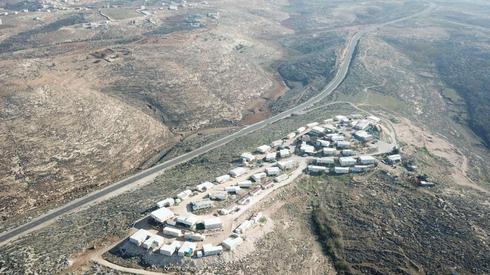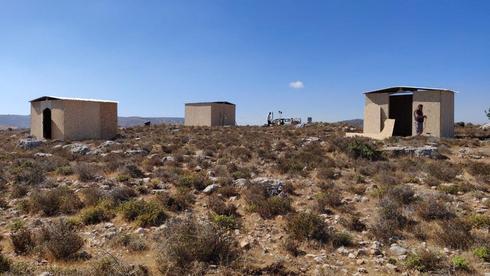Opinion: New draft legislation demands a referendum or support from two-thirds of MKs in order to remove any settlements or outposts in a deal with Palestinians; but who gave settlement movement’s wildest wing the right to set government policy?
The head of the Knesset Foreign Affairs and Defense Committee, MK Zvi Hauser, has tabled a law requiring a referendum before any of 130 West Bank settlements can be removed in a future agreement to end the Israeli-Palestinian conflict.
Such a law already exists pertaining to communities on the Golan Heights, which was enacted in 2010.

Barring a referendum, the 2010 law specifies, the Knesset would have to agree to the move by a majority of 80 MKs.
Hauser was motivated by the thawing of relations with the UAE and the pending normalization agreement, which removes the option of West Bank annexation, and his legislation could be seen as a consolation prize for the far-right parties.
The Blue & White party headed by Benny Gantz has a similar perspective, and even included the demand for a referendum on the settlements as part of any future negotiated diplomatic agreement.
But one cannot compare an historic peace agreement with the removal of a West Bank outpost that was approved through political coercion in the first place.

Some of the outposts were built by the most extreme groups of settlers in the West Bank, with the express purpose of destroying any possibility of a future peace deal. These outposts are often deliberately built among densely populated Palestinian areas.
There was no referendum or an extraordinary majority vote in the Knesset to set up these illegal communities and there is no reason to have one now in order to remove them.

In fact, a Likud-led government told the U.S. in 2003 it was committed to removing outposts built after 2001, a commitment it has failed to fulfill.
The government must decide where settlements should be built and when they should be dismantled, and at least thus far, no one has given the extreme wing of the settlement movement the authority to decide any future political agreements. So why is Hauser suggesting as much in a proposal that goes even further than the 2010 law?
There is no peace deal with the Palestinians around the corner and even negotiations seem a far-off possibility, so no removal of settlements is an imminent threat.
It is the duty of the government to work towards a resolution of the conflict and prevent the dangers of a one-state solution.
The Hauser bill would do nothing more than endanger the national interests not only by dealing a fatal blow to any future agreement, but by facilitating a one-state solution in the future.
As reported by Ynetnews
